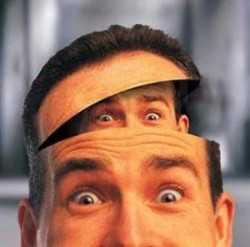Schizophrenia Diagnosis

Get help with your schizophrenia disorder.
If a doctor suspects that an individual may have schizophrenia, he or she will take a complete medical and psychiatric history of the patient and conduct a series of tests to help him or her come to a proper diagnosis of the disorder. Most of the time, schizophrenia diagnosis will include a series of lab tests to determine whether there are other conditions or problems which may be causing the symptoms as well as a complete psychological evaluation to determine the emotional or mental status of the patient.
People who suffer from schizophrenia may hear voices or suffer from delusions. It is very common for people with schizophrenia to behave erratically and unorganized. Often times, a family member or loved one will be the first to recognize that an individual has a problem that is interrupting his or her daily life or routines. This is sometimes what brings the individual to forth to a doctor or healthcare professional such as a psychiatrist for further diagnosis and treatment.
Criteria for Schizophrenia Diagnosis
In order for a person to be diagnosed with schizophrenia he or she must exhibit certain criteria as set for in the Diagnostic and Statistical Manual of Mental Disorders (DSM). This is a manual that has been published by the American Psychiatric Association and is the handbook or foundation for evidential diagnosis of mental health conditions including schizophrenia as well as many other disorders.
Before an individual can be diagnosed with schizophrenia the psychiatrist or healthcare professional must first rule out other mental health disorders and determine that the symptoms that are being exhibited are not the result of substance abuse. Medications and various medical conditions are sometimes responsible for creating symptoms which may resemble schizophrenia so the healthcare provider must also rule these potential causes out before making a final diagnosis of schizophrenia in the patient.
The patient must have at least two symptoms of schizophrenia or exhibit negative symptoms of schizophrenia for a significant number of days in a particular month. The symptoms that a doctor or psychiatrist will be on the lookout for include:
- delusions
- hallucinations
- disorganized behavior
- disorganized speech patterns
- catatonic behaviors
If any of the following negative symptoms of schizophrenia are present during a significant amount of time in a single month there is a potential for schizophrenia diagnosis:
- lack of movement when speaking
- speaking in monotone
- showing no real signs of pleasure in day to day life
- inability to begin activities that were planned
The symptoms of schizophrenia, with the exception of negative symptoms, must be present for a period of at least six months in order for a diagnosis to be made. The individual must also be experiencing impaired abilities in the performance of daily tasks or at work, home or school.
It could take a doctor quite some time to formally diagnose schizophrenia as he or she must first rule out all other medical conditions, the potential for substance abuse being the cause of the symptoms and various other factors before coming to a final conclusion.
